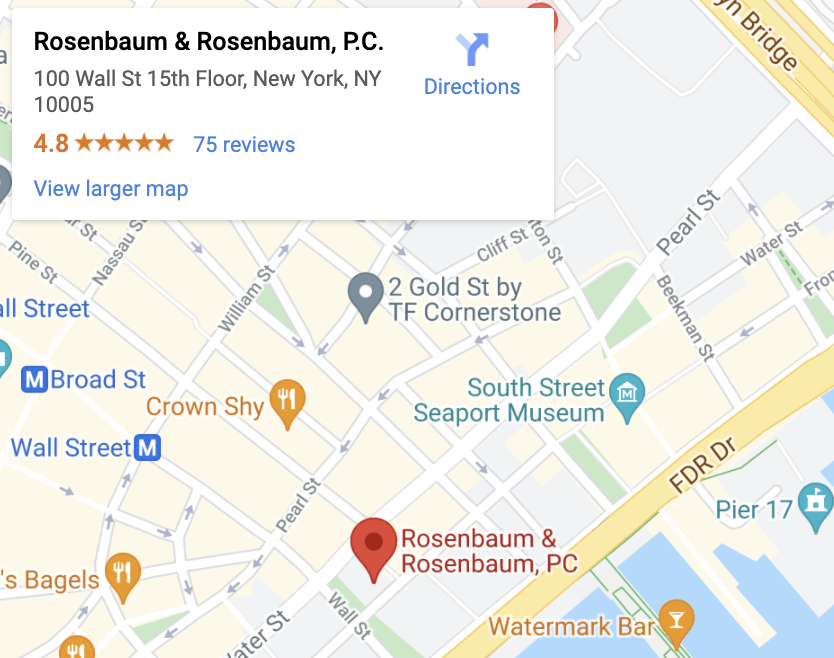The Inside Scoop on How Insurance Companies Will Fight Your Personal Injury Claim

If another party injured you, you might be contacted by an insurance company about a personal injury claim.
Liability insurance companies handle most personal injury claims for motor vehicle accidents, construction accidents, medical malpractice claims, premises liability cases, defective product claims, and other personal injuries.
Unfortunately for accident victims, insurance companies fight personal injury claims to avoid paying money.
It does not matter that the person was injured because of another party’s negligence or wrongdoing and deserves compensation for damages. The insurance company is only interested in protecting its profit margin.
Before you talk to a claims adjuster or other insurance company representative, make sure you know the scoop on how insurance companies fight personal injury claims.
Table of Contents
Insurance Tricks That You Need to Know After an Injury
Before you deal directly with the insurance company for the party who caused your injury, you need to be aware of the following tricks insurance companies use to fight personal injury claims:
Blaming the Victim

You may be shocked when an insurance claims adjuster tries to shift the blame for the accident to you. Do not be shocked. Blaming the victim is a common method used by insurance companies to avoid liability for a car accident, slip and fall accident, or other personal injury.
You cannot recover compensation for your damages if the other party did not cause your accident. The insurance may deny your claim by stating that you were the one who caused the accident that resulted in your injury.
However, the company does not need to shift all the blame for the accident to you to save money. Under New York’s contributory negligence laws, your compensation is reduced by the percentage of blame you have for causing the accident.
Therefore, if the insurance company can convince a jury that you were 50 percent at fault for your motorcycle crash, your money is reduced by one-half. If the insurance company or any other party suggests that you are partially at fault for the cause of your injury, hire a personal injury lawyer immediately.
Using Delays in Medical Care to Deny Claims
Some accident victims might feel “fine” or “okay” after a car accident. It could be that the person did not sustain injuries. However, feeling okay could also be the result of the shock of the accident and the adrenaline in your system.
Feeling okay after an accident does not mean you are not injured. Some injuries may take a few hours or days to present symptoms.
However, if you do not seek prompt medical care, the insurance company will likely argue that the accident did not cause your injury. It will argue that you would have gone to the hospital or a doctor right after the accident if you had been injured.
Prompt medical care is essential for your health and personal injury claim. See a doctor as soon as possible after an accident. Report all symptoms with your doctor to ensure that your injuries are documented for a claim.
Dragging Out a Case
The insurance company may drag out your claim. There are two reasons for this action.
The insurance company knows that you need money. It might want to wear you down by delaying settlement so that you give up and accept a lower offer so that you can get money in your pocket.

The other reason for delaying a case might be to create a statute of limitations defense.
All personal injury cases are subject to a statute of limitations. The statute of limitations sets a deadline for filing personal injury lawsuits.
If you do not settle your claim or file a lawsuit before the deadline in the statute of limitations, you lose your right to pursue a legal claim.
There are exceptions to the statute of limitations that can decrease or increase the time to file a claim. It is always best to talk with a lawyer as soon as possible after an accident to avoid a problem.
Requiring Written or Recorded Statements
A claims adjuster may tell you that you must provide a written or recorded statement for the insurance company to process your claim. This common insurance trick is used to obtain information the company can use to deny or undervalue your injury claim.
Anything you say can be used against you to hurt your claim, especially if your case goes to court. It is never in your best interest to provide a written or recorded statement without talking to a personal injury attorney.
Remember, your conversations with the insurance company are usually recorded, even if you are not informed the call is being recorded. The claim adjuster may act like your friend and tell you that he will help you get the most money available for your claim.
Be careful what you say to insurance adjusters. They are working to protect the insurance company’s best interest. They do not have your best interest in mind.
Asking You to Sign an Authorization to Obtain Medical Records
Obtaining a medical records release is another common trick used by insurance adjusters to gather evidence to lower your personal injury claim’s value. The adjuster might tell you that the insurance company must have copies of your medical records to verify your injuries.
This statement makes sense, so you sign the medical records authorization form.
However, you do not read the form carefully, or the form is incomplete. The insurance company uses the form to obtain copies of your entire medical history. The company searches for prior injuries or health conditions.
If you have a pre-existing condition or prior injury, the insurance company might argue that the accident is not responsible for your current condition.
There are laws that prevent insurance companies from denying claims based on prior injuries or conditions. Talk to a personal injury attorney if you have a prior accident or injury before signing any forms or talking to a claims adjuster.
Pressuring You to Accept a Quick Settlement
The insurance company knows that you might be out of work and have medical bills to pay. Therefore, it might offer you a quick settlement for your personal injury claim.
However, the settlement amount is probably much lower than the value of your personal injury claim. The company wants to settle the claim before you have a chance to talk with an accident attorney or learn about the full extent of your damages.
It is not in your best interest to settle a personal injury claim before you complete medical treatment. You cannot know the extent of your injuries or damages until your doctor releases you from treatment. The accident could have caused a permanent impairment or disability, which results in additional damages now and in the future.
Telling You That You Cannot Afford an Attorney
The claims adjuster may tell you that you cannot afford to hire an attorney, or an attorney will take all your money. Do not fall for this insurance tactic. Most personal injury lawyers accept cases on a contingency fee, so you pay nothing upfront to hire the attorney.
Also, hiring an attorney could increase the amount of money you receive for your personal injury claim. An attorney understands the damages available for an injury claim and how to maximize the value of your damages.
The insurance company will not tell you the actual value of your personal injury claim. It will pay as little as possible to resolve the claim. Without an attorney, you could accept a settlement offer that is thousands of dollars lower than the value of your claim.
Get in Touch With Our New York Personal Injury Attorneys
Hiring a personal injury attorney helps you avoid some of the common mistakes people make when handling their personal injury claims. Your injury lawyer handles all communication with the insurance company and protects you from unfair and unjust insurance tactics.
Sadly, the above insurance tactics and tricks are just examples of the ways insurance companies fight claims. There are many other ways that an insurance company might try to deny or undervalue your claim.
Your lawyer investigates the cause of your injury, gathers evidence of fault, documents your damages, works with your doctor to determine the extent of your injuries, and provides legal advice and guidance. The insurance company has a team of professionals working to protect its best interest. Make sure you have a legal team working to protect you.



